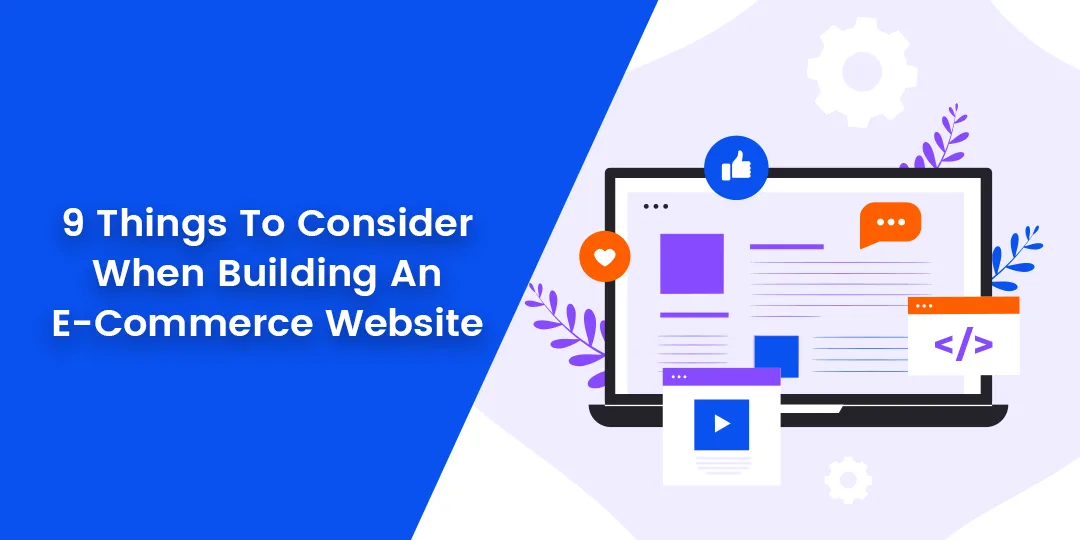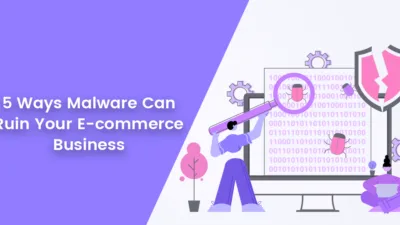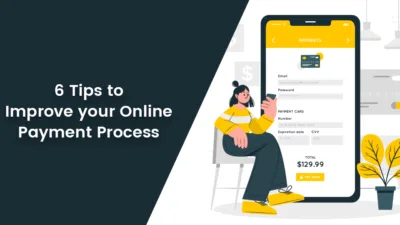Hello, E-commerce buddies!
Building an e-commerce website for your business might be the doorway to your revenue increase. However, this might not happen overnight as you have to take time and build a strong client base. Good e-commerce websites are simple to use, have a good user experience, are customized to suit the nature of your products, and employ the highest level of cybersecurity.
Some platforms that you can use to build an e-commerce website are Amazon FBA and Shopify. To use Shopify compared to Amazon depends on your specific needs, as each one of them has its advantages and disadvantages. With Amazon, you already have a pool of customers that you can leverage, while with Shopify, you have to look for your customers. Besides, it’s easy to use either of these platforms.
So that you can build a worthy e-commerce website for your business, in this article you’re going to learn several aspects that you need to put into consideration.
9 Things To Consider When Building An E-Commerce Website
Good Product Descriptions And Showcase
The purpose of an e-commerce website is to sell tangible products. Using visuals and good product descriptions is the mode of marketing. To showcase your products, you need to use high-quality photos that can attract your customers’ attention. Larger images may be better compared to smaller images. Quality images show how the products you’re selling appear in real-time.
To give your customers a good experience, consider using the same product on one page. Don’t mix different products on one page as this will give challenges while searching for products.
Avoid giving wrong information, such as color or size, as this works against the credibility of your site, which may discourage people from coming back. Give a detailed and accurate description of each product. Because this isn’t a physical shop where customers can touch the product to see it, the information given is what helps them visualize the product. Thus, give information concerning the color, type, thickness, size, cut, weight, and fit, especially for clothes. If possible, you may use images captured from different angles.
Shopping Cart Design
Designing a shopping cart is often not given much consideration and input by many developers. A good design shopping cart should be able to allow the user to add more items, remove products, and revise the order as easily as possible. Also, a good cart has functional product images, product recommendations, a convenient search bar, order summary, ‘continue shopping’ option, and reviews.
Responsive Design
A responsive website can be accessed and used using any device. The use of mobile devices has continued to grow. Many customers access e-commerce websites using smartphones. Thus, when designing your website, ensure that it’s optimized for mobile devices, which is a feature of good user experience no matter what type of device one is using. You can use good tools, such as Episerver CMS, which automatically implements a responsive design.
A good responsive design aims to ensure that the users of mobile devices have a good experience with your site, from navigation to payment and checkout.
Cybersecurity
A secure e-commerce website should support SSL for information encryption. E-commerce sites handle credit card data and payment information, as well as other customer details, such as phone numbers and email addresses. Your customers expect that all their data will be safe in the process of buying online. Using SSL for your website is effective in providing data security, which gives confidence to your customers to continue shopping from your website.
Avoid storing the credit card numbers on your database on your server. Even the best security measures can be compromised, which can be a big risk to your customers.
Optimize Performance
Slow websites are a put-off for many customers. This is true for mobile users as they easily move to do something different if your site is slow. A fast website takes around three to four seconds to load a page. Therefore, ensure that your site is optimized in the following ways:
- Put CSS and JavaScript resource files together to enhance their interaction with your site.
- Compress your images for quality visuals and small sizes. This reduces the time taken to download.
- Use caching to cut the amount of time used to send information from the database server to the webserver.
Support And Contact Information
Let your e-commerce customers understand that your support is only a text, call, live chat, or email away. Customers love a place where they’re valued and accorded the necessary help that they need. Ensure that your e-commerce site has 24/7 customer support. With the current technology, it’s easy to integrate your website with automated live chat apps. Customer support is one of the ways that can earn you loyal customers.
Payment Options
Your site should facilitate the use of various online methods of payment for your customers. Payment shouldn’t be limited to Mastercard and Visa only, but should also include PayPal, Google Pay, Amazon Pay, American Express, Apple Pay, Stripe, and Visa Checkout. Having a limited method of payment also limits the number of people who can shop from your website. So, to boost your sales, broaden the payment methods.
Ease Of Checkout
Ensure that your customers can check out with the guest option, quickly and anonymously. The process should be as easy as possible. If the process is hectic and tedious, it discourages repeated purchases. Minimize the number of checkout pages as much as possible to avoid overwhelming your customers.
Outstanding Site Search
Most of the customers use the search engine to look for the products they need. So, ensure that your search functionality is effective with the autocomplete feature. Faceted search is also good for your customers for they can use data, such as price range, size, or manufacturer to get what they want.
Conclusion
Building an e-commerce website is a demanding activity that might also be costly. You need to get professional developers who’ll help you design an efficient site. You can ask for examples of sites that they’ve worked on before so that you can see their level of expertise. The end product you receive should be secure, facilitate multiple payment methods, easy to use the efficient shopping cart, and be optimized for good performance.
Happy Reading!






Hey, I read your article and your information is very amazing and so much helpful for me. Keep it up and Thank you very much.:)
WOW! The factors you mentioned are really worth able to consider before developing a Ecommerce website, Thanks for sharing.
This checklist is a must-read for any business owner planning to launch an eCommerce site. I especially liked the emphasis on responsive design and cybersecurity two areas that are often overlooked but make a huge impact on customer trust and retention. Thanks for sharing such valuable insights they always inspire me to grow in my own work!